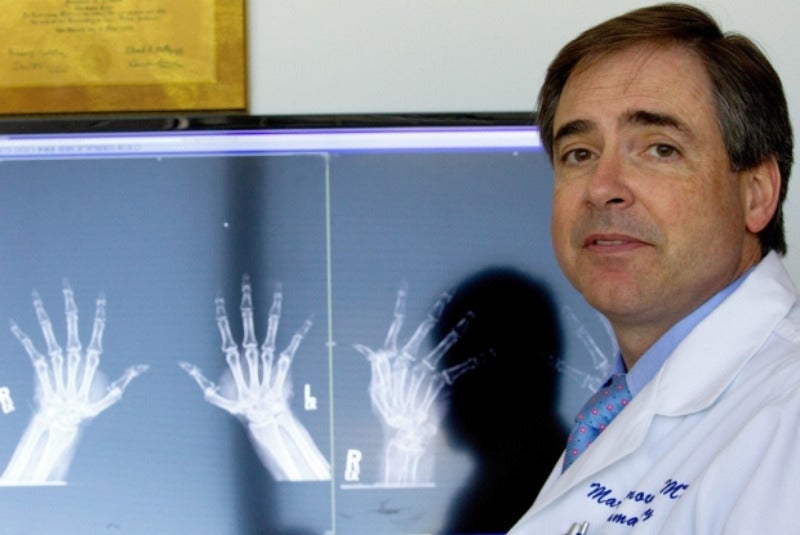
A Phase III clinical trial led by a Stanford University School of Medicine investigator has demonstrated that Gilead Sciences’ filgotinib led to substantial improvements in rheumatoid arthritis patients who did not respond to existing therapies.
Filgotinib is an investigational, selective inhibitor of the JAK-1 enzyme, which is involved in some inflammatory signalling processes in cells.

Discover B2B Marketing That Performs
Combine business intelligence and editorial excellence to reach engaged professionals across 36 leading media platforms.
The randomised, double-blind trial compared 200mg and 100mg doses of the therapeutic with placebo over 24 weeks in a total of 449 subjects at 114 sites in 15 countries.
It recruited previously treated moderately to severely active rheumatoid arthritis patients with an average age of 56 years.
The trial’s primary objective was at least 20% improvement on the ACR20 measure of joint swelling and tenderness at 12 weeks. A key secondary outcome was the DAS28-CRP score showing low disease activity in 28 predetermined joints.
Both filgotinib doses met the primary endpoint with a significantly higher proportion of patients experiencing a 20% improvement in the ACR20 measure compared to the placebo group.

US Tariffs are shifting - will you react or anticipate?
Don’t let policy changes catch you off guard. Stay proactive with real-time data and expert analysis.
By GlobalDataThe improvement was found in 66% of subjects on the 200mg dose, 57.5% of those on 100mg, and 31.1% of those who were given placebo.
An improvement was also observed in the DAS28-CRP score at weeks 12 and 24.
Low disease activity was found at week 12 in 40.8% of those on 200mg and 37.3% of those taking 100mg, compared to 15.5% in the placebo arm.
At 24 weeks, the figures were 48.3% and 37.9%, respectively, in the high-dose and low-dose arms.
Study principal investigator Mark Genovese said: “We found that those high levels of response were independent of how many drugs you’d failed, and independent of which drugs you’d failed.”
Gilead, which funded the trial, intends to seek US Food and Drug Administration (FDA) approval for filgotinib.





